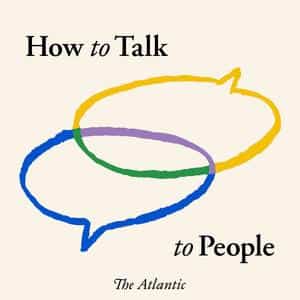Intro
In this episode of Startalk Radio, host Neil deGrasse Tyson interviews Dr. Lipi Roy, a physician specializing in addiction medicine and public health. They discuss the number one killer of human beings worldwide – cardiovascular disease – and its impact on different communities. Dr. Roy sheds light on misconceptions about heart health, the relationship between heart health and COVID-19, and the importance of adopting healthier lifestyles to reduce the risk factors for heart disease.
Main Takeaways
Heart Health and Disease
- Cardiovascular disease is the number one killer of human beings in the world today.
- Cardiovascular disease includes a group of illnesses, including coronary artery disease, cerebral vascular diseases, peripheral artery disease, and rheumatic heart disease.
- Adopting healthier lifestyles can reduce the risk factors for heart disease.
- Heart disease is a huge epidemic in the Indian community due to a strong genetic predisposition.
- There are many different ways to attack or harm the heart, including coronary artery disease, structural heart disease, and arrhythmias.
- External causes like medications, alcohol, and stimulants like cocaine can also adversely impact the heart.
- Marijuana can make the heart beat faster and increase blood pressure, which can harm the heart.
- Alcohol consumption has gone up in women during COVID, causing alcohol-related mortality to increase in women.
- Cardiac arrest is when the heart stops, often suddenly, while a heart attack is when the blood vessels supplying the heart get blocked, causing part of the heart muscle to die.
- Heart failure is when the heart is unable to pump enough blood to meet the body’s needs, often due to damage from a heart attack or other factors.
COVID-19 and Vaccines
- COVID-19 and vaccines’ effects on the heart are still being studied.
- Vaccines are designed to prevent diseases and undergo rigorous testing, including testing on a larger population than other medications.
- Childhood vaccines were designed to prevent diseases, while COVID-19 vaccines aim to prevent severe symptoms and hospitalization.
- COVID-19 vaccines aim to reduce severity of disease, hospitalizations, and deaths.
- Vaccines are not designed to prevent getting the disease entirely, but to reduce risk and severity.
- Influenza vaccines also reduce the risk of getting the flu.
- Heart inflammation can be rare and treated with antibiotics, steroids, antifungals, and blood thinners.
Prevention and Lifestyle
- The vast majority of heart disease deaths are preventable through lifestyle modifications.
- Gene therapy is an exciting area of advancement in cardiology, with potential for repairing or replacing genes related to cardiac events.
- High blood pressure can cause aortic and mychral valve disease, leading to left ventricular hypertrophy.
- Congenital heart disease is rare and mostly detectable in utero, with advancements in neonatal cardiology and cardiac surgery.
- Healthcare providers can play a role in addressing loneliness and social isolation by screening patients and connecting them with resources.
- There is a need for more diversity and representation in healthcare to better serve marginalized communities.
- Prevention and investing in what is already known is key to reducing cardiovascular disease.
- Marginalized communities at most risk should be targeted for prevention efforts.
- Western mentality of wanting a pill instead of eating healthy is contributing to heart disease.
Summary
Cardiovascular Disease and Heart Health
Cardiovascular disease is the leading cause of death globally, with coronary artery disease, cerebral vascular diseases, peripheral artery disease, and rheumatic heart disease being part of this group. Dr. Roy emphasizes the importance of adopting healthier lifestyles to reduce the risk factors for heart disease. She highlights the genetic predisposition to heart disease in the Indian community and the various ways the heart can be harmed, including through external causes like medications, alcohol, and stimulants. The impact of alcohol consumption on heart health, especially during the COVID-19 pandemic, is also discussed.
COVID-19, Vaccines, and Heart Health
Dr. Roy explains that the effects of COVID-19 and vaccines on the heart are still being studied. She emphasizes the rigorous testing and design of vaccines to prevent severe symptoms, hospitalization, and deaths. Heart inflammation, although rare, can be treated with appropriate medications. The importance of understanding that vaccines are not designed to prevent getting the disease entirely but to reduce the risk and severity is highlighted.
Prevention and Lifestyle Modifications
Dr. Roy emphasizes that the vast majority of heart disease deaths are preventable through lifestyle modifications. She discusses the exciting advancements in gene therapy in cardiology and the potential for repairing or replacing genes related to cardiac events. The impact of high blood pressure on heart health, including aortic and mychral valve disease and left ventricular hypertrophy, is explained. The importance of addressing loneliness and social isolation in healthcare, along with the need for diversity and representation in the field, is also discussed.
Conclusion
Cardiovascular disease remains the number one killer globally and in the US, but it is largely preventable through lifestyle modifications. Understanding the impact of genetics, external causes, and lifestyle choices on heart health is crucial. Additionally, ongoing research on the effects of COVID-19 and vaccines on the heart will further inform preventive measures. By investing in prevention efforts, targeting marginalized communities, and promoting healthier lifestyles, the burden of cardiovascular disease can be significantly reduced.
